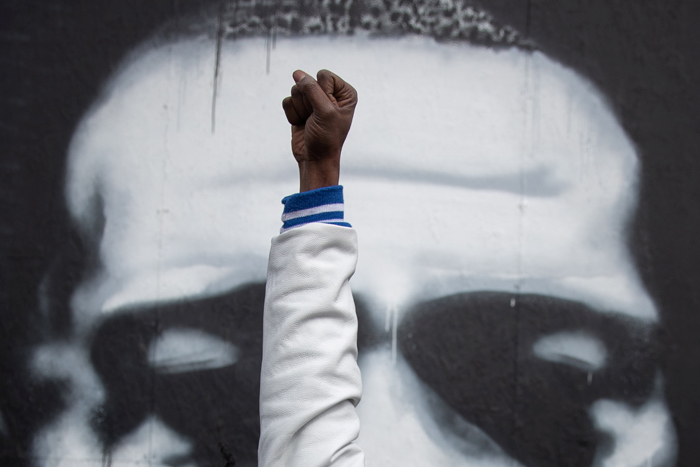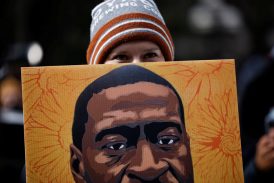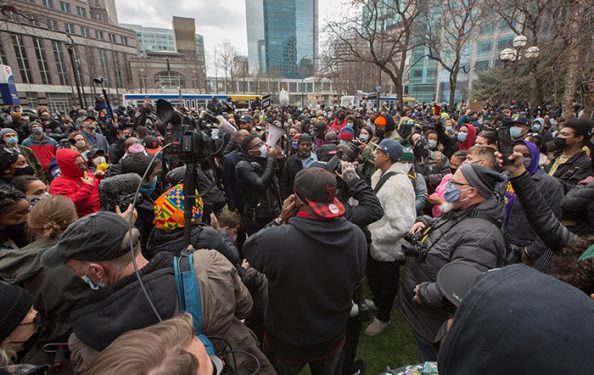
MANHATTAN — When Bishop Roy Campbell, Jr., considers the Church’s role on issues of race in 2021, he looks back at the civil rights marches of the 1960s when “a lot of people with collars” marched alongside Rev. Martin Luther King Jr., Rev. Ralph Abernathy, and others.
“Has it come to that? I think so,” Bishop Campbell, an auxiliary bishop of Washington, told The Tablet.
[Related: After Guilty Verdict In Floyd Murder, Bishops Say Work For Racial Justice Continues]
And he’s not alone in that belief. On Tuesday, the one-year anniversary of the murder of George Floyd — a black man whose death was caught on camera when then-police officer Derek Chauvin asphyxiated him by kneeling on his neck — Catholic leaders reflected on the renewed attention paid to racial justice this past year and acknowledged the essential role of the Church on the long road ahead.
Bishop Campbell likens the importance of racial inequality to that of abortion, which is the preeminent issue for the U.S. bishops. Going forward, he wants to see the bishops advocate for justice for all people with the fervor with which they advocate for the unborn.
“Once we’re born, if we’re not treated with the same dignity that we want for those that aren’t born, then we’re not doing what we need to do and the church has to be a leader in that,” said Bishop Campbell, who is also the president of the National Black Catholic Conference. “This is our moral responsibility. Human life has limitless value in the eyes of God, and that is from conception to natural death.”

Bishop Campbell fears without that commitment the conversation could fall by the wayside. Therefore, in addition to leadership from the U.S. bishops, he said it’s important for all people to move forward with dialogue and actions as simple as “treating others with the dignity with which we want to be treated.”
Bishop Frank Dewane of Venice, Florida, a member of the U.S. Bishops Conference Ad Hoc Committee Against Racism, told The Tablet that in order for there to be lasting change people first need to look inward.
“How many friends do we have, or people just say to themselves, ‘I don’t have a racist bone in my body?’ We’ve all heard that phrase,” Bishop Dewane said. “Right now, it kind of sends shivers up my spine because I think we all have to look internally on this one.”
Deacon Mel Tardy, the president of the National Black Clergy Caucus, said another point of dialogue is policing, including changes to how funding is being used and increased efforts to improve relationships between the police and local communities.
Deacon Tardy said the video of Floyd’s death showed people “the humanity of someone in that situation perhaps for the first time.”
He also spoke about systemic racism and the role that plays in expanding the conversation.
“To say that something is an isolated incident — ‘I don’t have anything to do with it, I’m a good person’ — is very different than there is systemic racism in place,” Deacon Tardy said. “And if I don’t become an anti-racist person to work against that systemic racism I am perpetuating the system.”
Going forward, Deacon Tardy said he hopes the church will grow out of “a tendency to be silent.”
“We are the most diverse religion there is but yet we tend to be those who build up walls as opposed to try and use the gifts of the Holy Spirit to bring us all together,” Deacon Tardy said. “The church has the opportunity. It also has the mandate, the call, to go out and preach the gospel. A gospel of unity. For the church to do anything else is not to be the church.”

